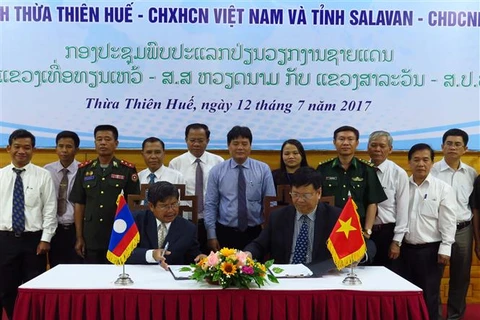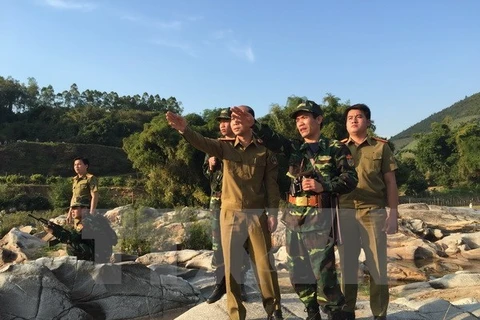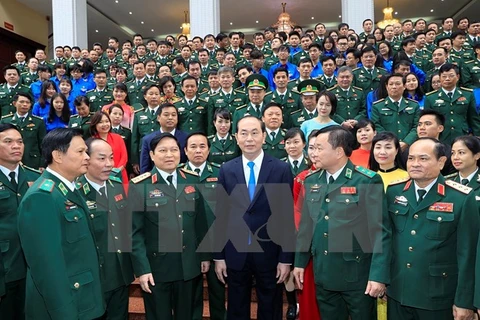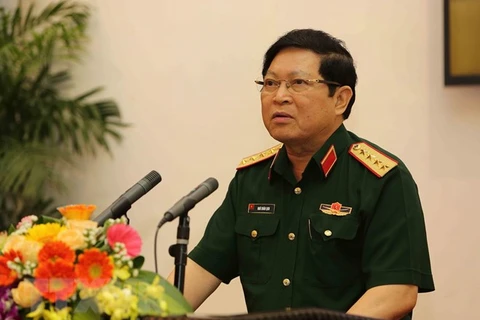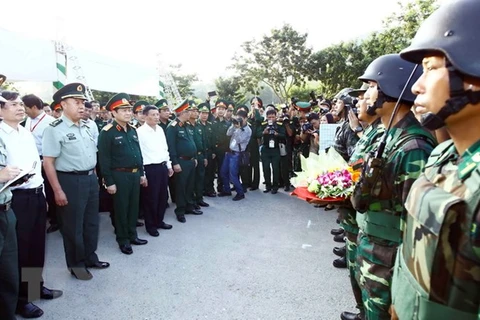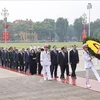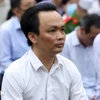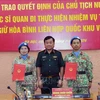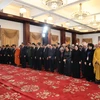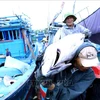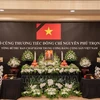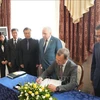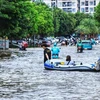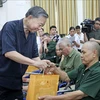 Col. Le Van Phuc, head of the border gate department of the Border Guard High Command, speaks at the meeting to review Quang Binh's implementation of the Ordinance on the Border Guard (Photo: VNA)
Col. Le Van Phuc, head of the border gate department of the Border Guard High Command, speaks at the meeting to review Quang Binh's implementation of the Ordinance on the Border Guard (Photo: VNA) Quang Binh (VNA) – The People’s Committee of the central province of Quang Binh held a meeting on August 17 to review the implementation of the Ordinance on the Border Guard over the last two decades.
Quang Binh has nine communes of five districts located along the 201.8 km-long land border with Laos. Meanwhile, its 116km-long coastline is home to 20 communes and wards of six districts, one town and one city.
Since the Ordinance on the Border Guard was issued in 1997, the province’s border guard force has handled entry-exit procedures for nearly 18 million people, over 5.2 million vehicles, and 8,600 ships with some 134,400 crew members.
They have dealt with more than 3,000 boats and vessels with violations and 504 foreign fishing boats illegally entering Vietnam’s sea areas. Local border guards have also uncovered 17 drug trafficking rings, handled thousands of drug dealers, and seized over 200 heroin bricks, 94kg of synthetic drug and 2,530kg of methamphetamine.
Col. Le Van Phuc, head of the border gate department of the Border Guard High Command, praised Quang Binh’s efforts and achievements in carrying out the ordinance over the past 20 years.
He asked the province to improve state management of the building, management and protection of national sovereignty and border security. Authorities should also better combine socio-economic development tasks with defence-security consolidation duties and capitalise on the public’s support for the work.
Addressing the meeting, Chairman of the provincial People’s Committee Nguyen Huu Hoai proposed the Party, State, National Assembly, Government and Ministry of National Defence enhance their direct and comprehensive leadership of national sovereignty and border security protection.
He also called for a strategy on national border protection to be promulgated soon, the legal system on border management and the border guard force to be fine-tuned, and a law on the border guard to be built to replace the existing ordinance.
Hoai also suggested more actions to promote the material and spiritual lives of residents in remote, disadvantaged and ethnic minority areas, while increasing benefits for border guards who have to perform duties in difficult conditions.-VNA
VNA
